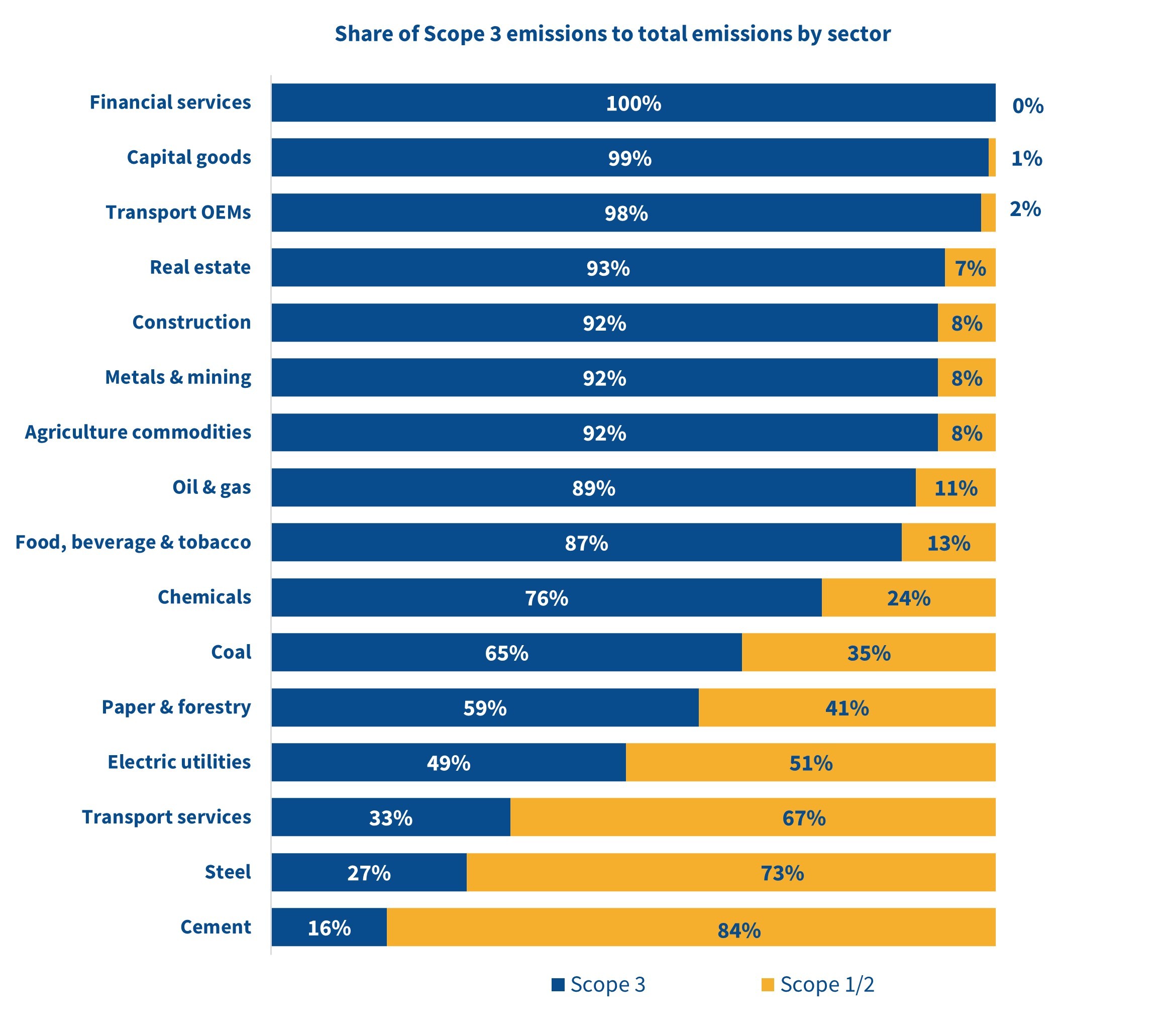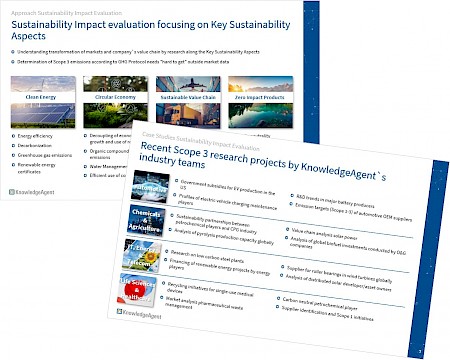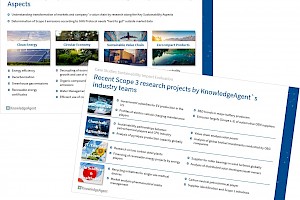Companies in all industries are incorporating sustainability into their business models in response to accelerating climate change and associated regulatory activity.
As a result, some companies are publishing commitments and targets for the reduction of CO2 emissions. These targets often refer to companies’ own business operations and don’t consider the companies’ roles in the entire value chain of their respective market.
Sustainability targets focus on Scope 1 & 2 emission
To achieve sustainability goals, companies focus on the reduction of Scope 1 & 2 emissions, which are (1) direct emissions from owned or controlled sources, such as combustion processes, equipment and facilities, and (2) indirect emissions from the purchase of energy such as electricity, steam and heat.
In addition to Scopes 1 & 2, the GHG Protocol defines Scope 3 emissions as indirect emissions which occur during the upstream & downstream value chain. These range from raw materials, purchased goods, transport, and of particular importance, the usage of the product by the customer. Scope 3 emissions however, account for 75% of all industries’ GHG emissions.


Therefore, a sustainability impact evaluation that considers the company’s entire value chain allows clients to identify and weigh new market opportunities through the lens of sustainability.
Transformation of markets
As companies commit to a reduction of emissions to achieve regulatory targets, an associated transformation of their markets and value chains takes place. Thus, sustainability plays a significant role in today’s innovation markets and market transformation also presents an opportunity to identify new niches, technologies and trends. As a result, companies will adapt their own business model.
A common way to identify market opportunities driven by sustainability is to perform a sustainability impact evaluation.
Key sustainability aspects
A sustainability impact evaluation, focusing on Scope 3, consists of a value chain analysis based on key sustainability aspects. Compared to identifying direct Scope 1 emissions, the sustainability impact of the value chain is hard to measure because the data lies largely outside the organization.
Topics of interest aspects for a sustainability impact evaluation are:
- Clean energy including energy efficiency and decarbonization initiatives
- Circular economy, regenerative growth aimed at reducing resource consumption and waste generation
- Sustainable value chain including a sustainable supply chain and sustainable commodities
- Zero impact products, combining climate neutrality, waste reduction and recycling.
The key sustainability aspects are the starting point for analyzing the impact of sustainability of the respective market. These aspects need to be supplemented with sector specific key intelligence topics for research.
Value chain analysis
KnowledgeAgents industry experts will first compile a detailed value chain before analyzing each step of the value chain for new technologies, trends and market entry opportunities to identify transformation processes.
If you would like to know how a sustainability impact evaluation can identify opportunities in your market, get in touch with us.



